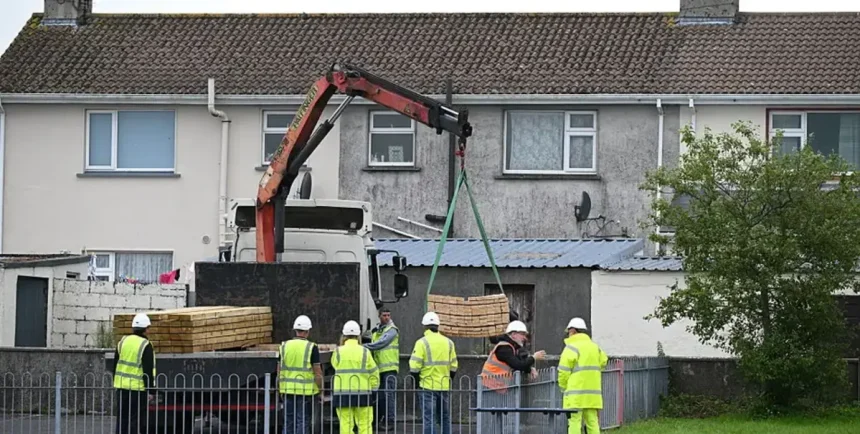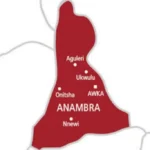Irish authorities have begun excavating a site in Tuam, County Galway, where the remains of 796 babies are feared to be buried in a disused septic tank at a former Catholic-run home for unmarried mothers.
The site, once home to the Bon Secours Mother and Baby Home, operated by the Bon Secours order of nuns from 1925 to 1961, housed thousands of women, many of them victims of rape or abuse who were forced to give up their children.
The institution was part of a wider system of religious-run homes supported by the Irish state.
The mass grave first came to light in 2014, when local historian Catherine Corless uncovered death certificates for 798 children associated with the home but found burial records for only one.
Her investigation, which revealed that many of the children’s remains may have been discarded in a former septic tank on the premises, triggered nationwide outrage and a government inquiry.
“This pit here may contain the remains of 796 little souls,” Corless told Sky News. “It’s a national shame.”
The excavation, which began this week, marks the start of efforts to recover and identify the remains, a process expected to last up to two years. The goal is to give the children long-denied dignity through proper burials.
Annette McKay, whose sister Mary Margaret is believed to be among the dead, recalled the moment her mother, Margaret “Maggie” O’Connor, was told of her baby’s death by a nun.
“She was pegging washing out and a nun came up behind her and said, ‘The child of your sin is dead,’” McKay said. Her mother had been raped at 17 and confined to the Tuam home to deliver the child.
Investigations revealed that some of the remains belonged to babies as young as 35 weeks in the womb. Many died from preventable diseases like gastroenteritis and respiratory infections due to neglect.
The Tuam institution was part of a network of 18 homes where an estimated 9,000 children died, according to a 2021 Irish government inquiry. Women who became pregnant again were often sent to Magdalene Laundries—infamous religious institutions for so-called “fallen women.”
While the Irish government issued a formal apology to survivors in 2014 and introduced a redress scheme in 2022, activists say justice is far from complete. To date, over $32 million has been paid out to more than 800 survivors.
ALSO READ TOP STORIES FROM NIGERIAN TRIBUNE






